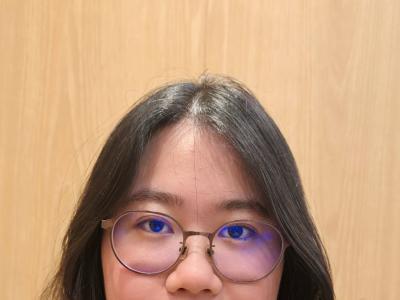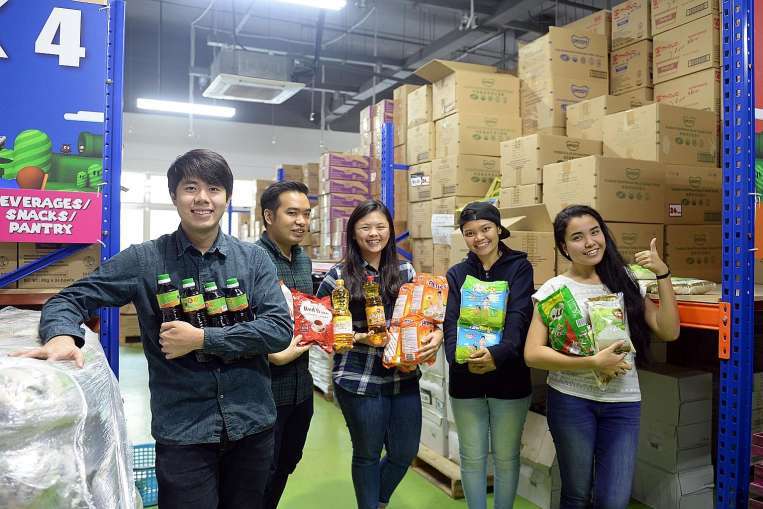
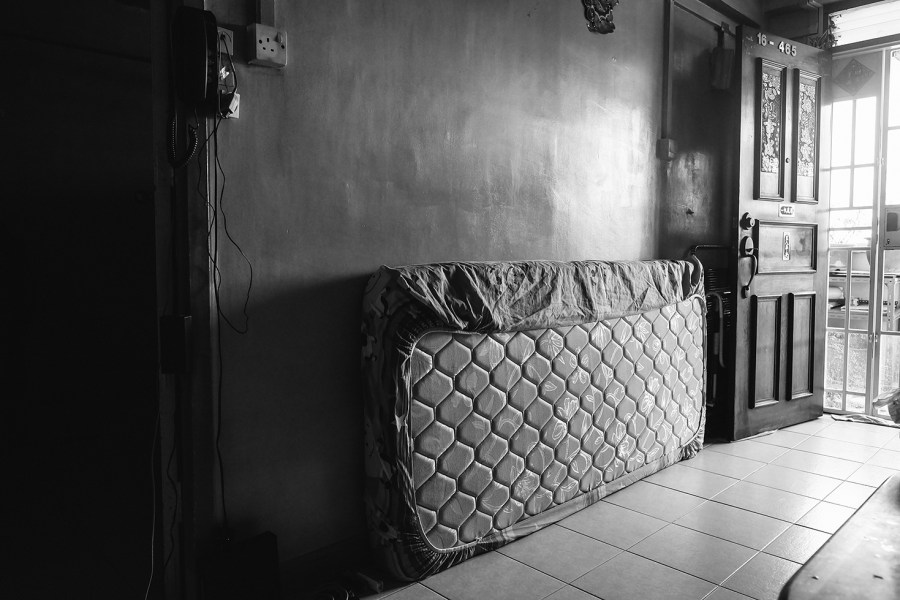
An empty living room by day, a bedroom for the children of a large family by night. It was sights and experiences like this from her time as an intern at Beyond Social Services in her final year at Ngee Ann Polytechnic that spurred Desiree Yang to start up Saltsteps—Singapore’s first social supermarket—at the age of 19 with her father, Roland Yeo.
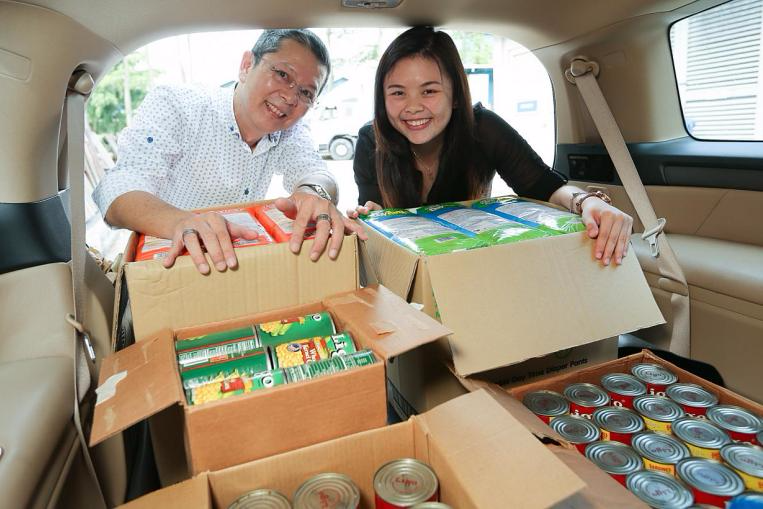
When Saltsteps was featured in The Straits Times, Causes Week 2014
“I wanted to do something with my experiences, but I didn’t know what. I looked to Google for ideas and searched up ‘ideas for social enterprises’”, she said.
One of the top results was the concept of social supermarkets—social enterprises that offer daily necessities at a heavy discount to communities that are in need. Further research revealed that social supermarkets had been flourishing in Europe for the last decade or so because large retailers, brands and manufacturers like Tesco and Marks & Spencer support the social supermarkets by diverting surplus to them. However, the same could not be said about the retailers, suppliers and manufacturers here in Singapore.
Currently an Economics undergraduate at SMU, Desiree, now 22, shared that it was setbacks and challenges like this that forced her and her father to reexamine their business model, which included moving away from the idea of a brick and mortar store to mobile pop-up stores and a delivery service. In late 2015, Desiree began discussions with the Director of GobblerCO, Janan Kwek, to integrate Saltsteps with his company. A “natural synergy” existed between one of his social enterprises Gobblershop, an e-commerce grocery retailer, and Saltsteps. And that marked the birth ofGobbler5, a social enterprise that aims to increase the quality of living of the marginalised communities in Singapore through low-cost provisions, education and partnerships, essentially Saltsteps on steroids.

The work that Gobbler5 does includes regular pop-up stores at the offices or events of the organisations that it works with, like Fei Yue Community Services and REACH Youth. In addition, the team also sells their discounted groceries to bus captains and taxi drivers, a group they’ve identified as the “sandwiched population”. Gobbler5 also runs a community programme in partnership with Jurong Central Constituency called Project Hand in Hand, where some 400 households with limited income redeem food and other basic necessities with points that they get from doing community service every month.
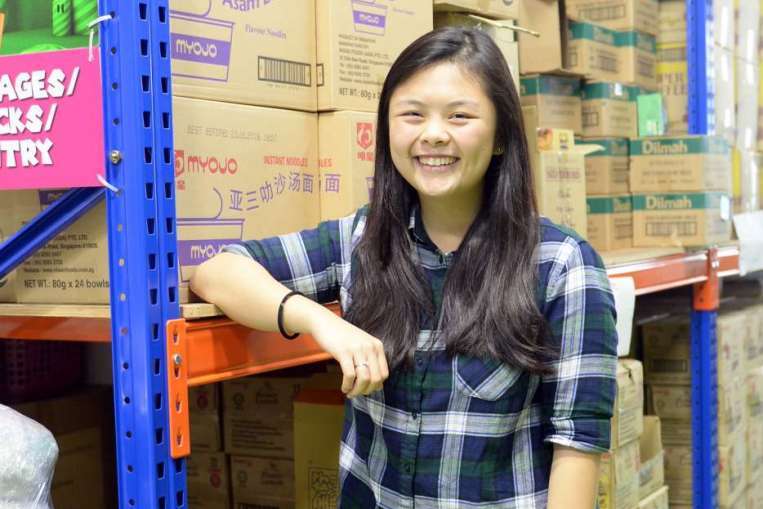
When asked about the benefits that have come out of the transition into Gobbler5, Desiree shared that the ability to focus her time and energy into expanding the work that Gobbler5 does within the social sector is the greatest plus point.
“I used to have to handle everything from finances to expanding Saltsteps’ network of partners and inventory. There’s only so much that one can do and it was a lot to take in,” she said.
The Gobbler5 team has now set their minds to switching up their repertoire of services with a pilot micro-entrepreneurship initiative that they intend to roll out by September.
“We hold firm to the principle of giving ‘a hand up’ rather than ‘a hand out’ in all that we do and we hope that this initiative will help to foster a sense of independence among the participants of our programme and—with time—break the cycle of poverty,” she said.
Serving the needy has been in SMU’s DNA since day one. Click here to learn more about how our students have been changing the lives of those in need.
